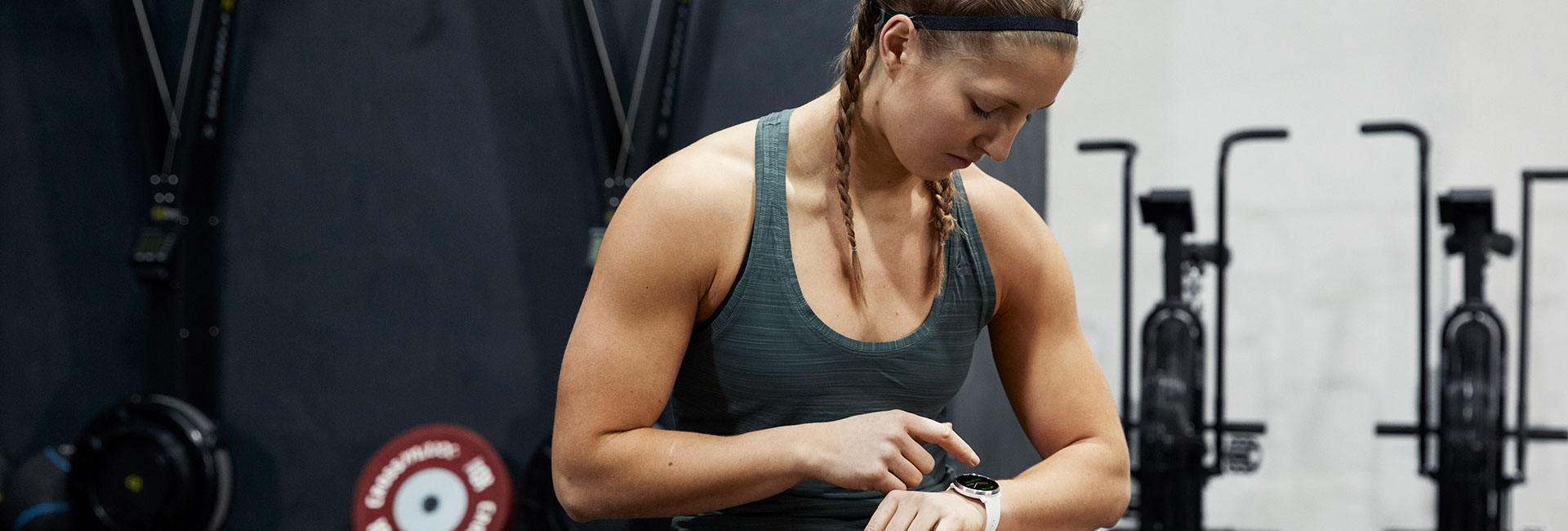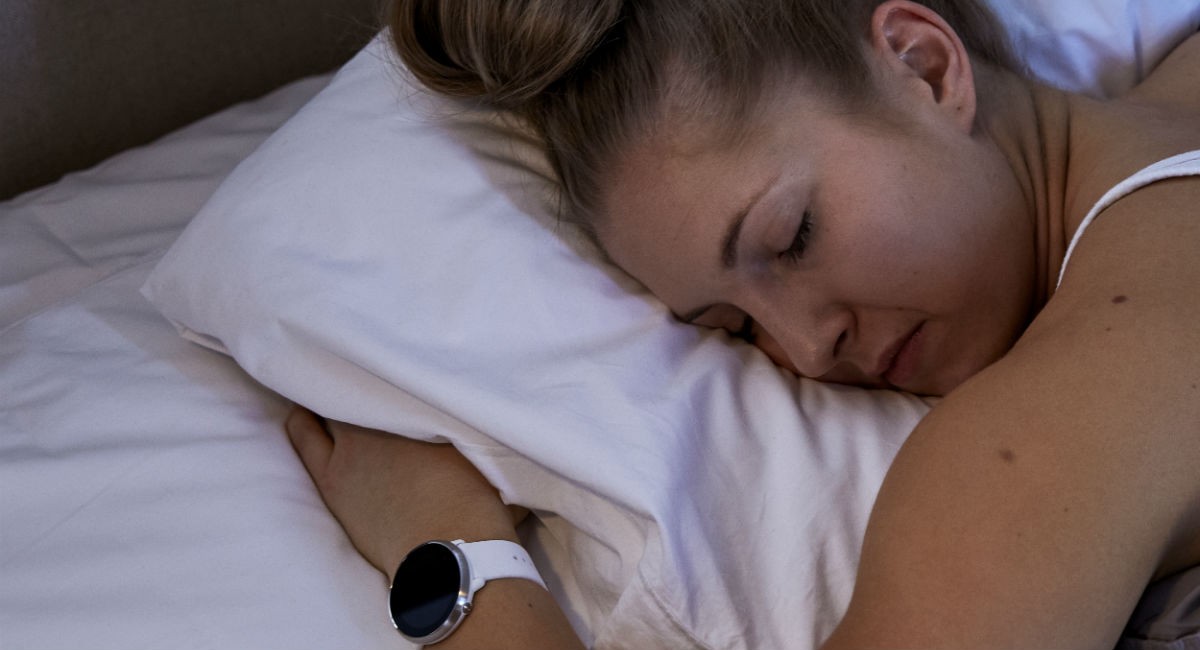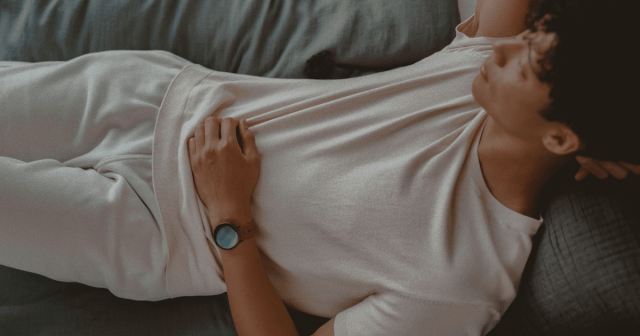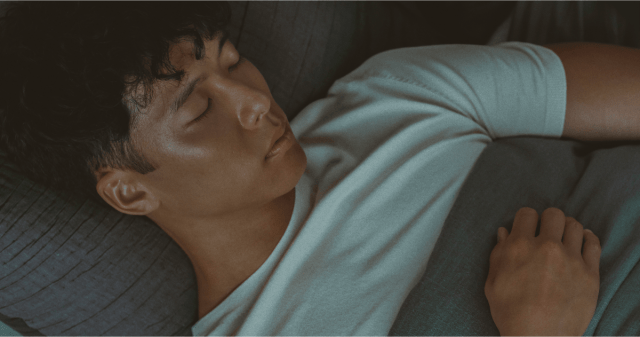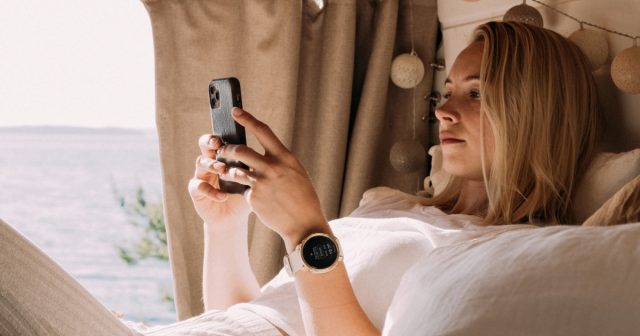Sleep and exercise go (or at least should go) hand in hand. Most of us would agree that sleep is important for everyone (of course), but especially for those of us who work out several times a week.
There’s a big difference between a morning workout after a solid night’s rest and a workout where you’re running on fumes. No matter how many caffeinated gels you consume, it’s just not the same — and it’s not sustainable over time.
If sleep and exercise are so closely intertwined, why then is sleep usually the first thing that’s sacrificed when you have too much on your plate? Sleep is how training manifests itself in the body, but it’s often neglected to the detriment of fitness performance and results.
Enough is enough.
Dr. Meeta Singh has a thing or two to say about why athletes and avid exercisers need to prioritize sleep as much as their individual workouts. She specializes in sleep disorders, obstructive and central sleep apnea and, you guessed it, sports medicine. Singh has worked with athletes in the biggest sporting organizations in the world, including the NFL, MLB, NHL, NBA, and MLS, where she educates athletes about the importance of sleep and how to make informed sleep-friendly decisions.
Here she breaks down everything from how lack of sleep impacts fitness performance, recovery and the results you get from working out and shares her go-to tips on how to improve your sleep quality and how to figure out your personal sleep need.
Long story short, sleep and exercise are interdependent – counting sheep should be prescribed daily on every athlete’s and exerciser’s training calendar.
How does lack of sleep affect exercise?
This list isn’t comprehensive since we’re learning more and more about how sleep affects every aspect of human performance.
Because sleep is important for optimal reaction times, motor function, focus, motivation, glucose metabolism, memory and learning, as well as stress regulation — all of which are integral for athletic performance — lack of sleep can affect your overall fitness and well-being as well as your performance and the results you see from working out.
I like to divide the effects of sleep deprivation into five large categories when it comes to fitness and athletic performance.
1) Accuracy and speed
The first category is accuracy and speed, we know that lack of sleep results in reduced reaction times as well as an increase in lapses in attention — both of which impairs performance during your workouts.
2) Decision Making And Memory
The second category is the effect that lack of sleep has on mental aspects. Lack of sleep will result in reduced functioning of the frontal cortex that is responsible for good decision making, multi-tasking, and good judgment, as well as increased emotionality leading to increased risk-taking behaviors. It also affects memory consolidation.
3) Metabolism
The third category is its effect on nutrition. Lack of sleep can contribute to impaired glucose metabolism and altered neuroendocrine function, which results in alterations in carbohydrate metabolism, appetite, food intake, and protein synthesis. All of these negatively affect your nutritional metabolic and endocrine status and ultimately reduce performance.
4) Injuries
The fourth major category is how lack of sleep affects injuries. It’s simple: lack of sleep results in increased risk of developing injuries.
5) Mood
The final major category is the effect of lack of sleep on mental health. It causes increased irritability, decreased mood, and increased levels of cortisol — the stress hormone that can contribute to impaired fitness performance.
How does sleep help the body and mind recover?
Sleep is essential and necessary to provide restoration with respect to molecular, cellular, or network changes that occur in the body while we’re awake.
Sleep serves many essential physical and behavioral functions.
There is no one single physiological role that sleep serves because it’s vital for many functions including energy conservation, brain waste clearing, modulation of immune responses, cognition, vigilance, maintaining health and prevention of disease, etc.
It does so by forcing reduced physical activity and reduced engagement of the brain with the environment. The reduced physical activity allows for physical recovery to occur, while the reduced interaction of the brain with the environment allows mental recovery to occur. We now know that during sleep the brain gets cleansed of waste material akin to being power washed.
What negative effects does inadequate or poor quality sleep have On recovery?
Apart from what we’ve already discussed, it’s important to know that sleep has a significant impact on muscle recovery. Most athletes think that they build muscle when you train or lift, but that is actually just part of the growth process, with muscle growth occurring during your sleep.
During sleep, blood supply to your muscles increases, and this allows oxygen and nutrients to help muscles recover. Hormones like growth hormone are secreted during deep sleep, and lack of sleep reduces the amount of growth hormone secreted. It also reduces the amount of testosterone hormones and increases hormones and factors that break down muscle.
Poor sleep results in poorer muscle recovery, and reduced sleep also increases inflammatory factors that makes injury recovery more difficult.
What does ‘quality’ sleep entail? How many hours Of Shut-Eye should You get a night?
Now that you know why it’s important to get enough sleep, it’s essential to create the right environment and timing for sleep. Athletes need eight to 10 hours of sleep for peak performance.
You can find out your actual sleep time by tracking your sleep. In addition, the Polar Ignite shows you how long you spent in each sleep stage and how well you recovered during the night.
The first step is to ensure that you have enough time to sleep. The key indicators of good quality sleep are falling asleep within 30 minutes or less, not waking up more than once a night, being awake for less than 20 minutes or less after initially falling asleep, and sleeping more time while in bed.
Essentially 85 percent of the time you spend in bed should be time spent asleep.
what are your go-to tips for improving sleep quality?
It’s essential we look at three main aspects when it comes to sleep.
The amount of sleep
On average we need seven to nine hours of sleep, so the most important thing is to make sure you get enough.
Timing of sleep
For example, you may be a morning lark or a night owl and there will be optimal windows of opportunity for your bedtime and you want to be in alignment to this.
It’s essential to align your sleep time to your individual circadian rhythm — your 24-hour internal clock that regulates sleepiness, alertness, and various bodily functions.
There is no one magical one-size-fits-all schedule that will suit everyone, and the best approach is to match your sleep time to your physiological rhythm.
Quality of sleep
Finally, to get good quality sleep pay attention to sleep hygiene.
It’s essential that during the day you are exposed to bright light. Conversely, in the evenings you should have reduced light exposure, and reduced caffeine use late in the evening.
Reduce long daytime naps as they can impair your sleep quality. Also, have consistent sleep and wake up times, reduce alcohol use before bedtime, and optimize your bedroom environment to keep it cool, dark, quiet and relaxing. Minimize electronic use in the bedroom.
How can you find out what your sleep need is?
The majority of healthy adults require between 7.5 to 8.5 hours per 24-hour period, and this is true from young adulthood through late in life, though many older people have difficulty sleeping in a single block of time each night.
Generally, sleep needs during a 24-hour period follow this pattern:
Newborns (1 to 2 months) – 16 to 18 hours
Infants (3 to 11 months) – 10 to 14 hours
Toddlers (1 to 3 years) – 12 to 14 hours
Preschoolers (3 to 5 years) – 11 to 13 hours
School-aged children (5 to 12 years) – 10 to 11 hours
Adolescents (12 to 18 years) – 8.5 to 9.5 hours
Adults (18 years to the end of life) – 7 to 9 hours
You can sometimes find out how much sleep you need when you’re on vacation where you can sleep as much as you want. Initially you may play catch up while trying to pay off your sleep debt, but after the two to three weeks, the average amount is your sleep requirement.
Another way to approach it is to check if you’re sleeping longer on your days off as compared to how you sleep habitually during your workdays. If you’re sleeping longer that means you are sleep deprived habitually and need to get more sleep.
Does regular Exercise lead to better sleep?
One way exercise may help is by the body-heating effects of exercise, especially when performed in the afternoon or later.
Exercise triggers an increase in body temperature, and the post-exercise drop in temperature may promote falling asleep.
Exercise may also reduce insomnia by decreasing arousal, anxiety, and depressive symptoms.
On the other hand, vigorous exercise too close to bedtime can be stimulating and thus interfere with sleep. Also, keep in mind pre-workout drinks may contain caffeine that may interfere with sleep.
If you liked this post, don’t forget to share so that others can find it, too.
Or give it a thumbs up!
I like this article
Please note that the information provided in the Polar Blog articles cannot replace individual advice from health professionals. Please consult your physician before starting a new fitness program.
